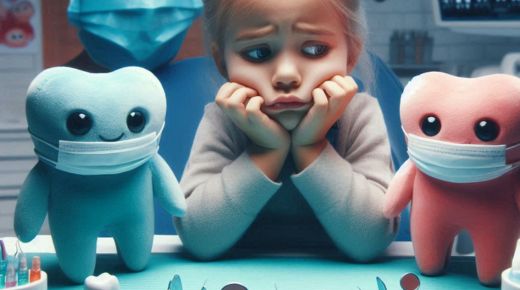Tiny Teeth, Big Trouble: Managing Dental Trauma in Kids
Dental trauma in children is a distressing and potentially long-lasting injury that affects not only their oral health but also their emotional well-being and self-esteem. Accidental falls, sports injuries, and playground mishaps can lead to chipped, broken, or knocked-out teeth, as well as jaw fractures and soft tissue damage. Prompt and proper management of dental trauma is crucial to prevent infection, tooth loss, and malocclusion, while also minimizing the risk of psychological trauma and long-term oral health complications.
The Indianapolis pediatric dentist educates parents to understand the signs, symptoms, and treatment options for dental trauma is essential to ensure your child receives the best possible care and maintains a healthy, confident smile.
What can cause dental trauma in children?
Children may be more prone to dental trauma due to the following causes:
- Falls: Accidental falls while playing or participating in sports
- Sports injuries: Contact sports, such as football, hockey, or soccer
- Accidents: Car accidents, bicycle accidents, or other traumatic events
- Playground injuries: Injuries sustained on playground equipment
What are the symptoms of dental trauma?
Dental trauma can manifest in the following symptoms:
- Tooth pain
- Swelling
- Bleeding
- Difficulty speaking or eating
- Displaced or knocked-out tooth
How can you manage dental trauma in children?
Managing dental trauma in children requires prompt attention, proper care, and ongoing monitoring. Here’s a comprehensive guide:
Immediate Response (Within 30 minutes)
- Remain calm and reassure the child.
- Assess the injury and stop bleeding with gentle pressure.
- Rinse the affected area with cold water.
- Apply a cold compress to reduce swelling.
- Seek immediate dental attention.
Dental Treatment
- Reimplantation: Replace a knocked-out tooth.
- Splinting: Stabilize a displaced tooth.
- Root canal: Treat a damaged tooth pulp.
- Crown or filling: Restore a chipped or broken tooth.
- Surgery: Repair a fractured jaw or surrounding tissue.
Home Care
- Monitor and maintain oral hygiene.
- Use a soft-bristled toothbrush and gentle toothpaste.
- Avoid hot or cold foods/drinks.
- Eat soft foods for 24-48 hours.
- Follow medication instructions (if prescribed).
Parental Guidance
- Stay informed: Educate yourself on dental trauma management
- Encourage safety habits: Teach children safety habits
- Maintain oral hygiene: Ensure good oral hygiene practices
- Monitor dental development: Regular dental check-ups
- Seek professional help: Consult a pediatric dentist for guidance
How can you prevent dental trauma in children?
Preventing dental trauma in children requires a combination of safety measures, education, and good oral health habits. Here are some effective ways to prevent dental trauma in children:
Safety Measures
- Use mouthguards during sports and activities.
- Wear seatbelts while driving.
- Use safety gear (helmets, knee pads, etc.) during activities.
- Supervise children during play.
- Install safety gates at stairs and doors.
- Secure furniture and appliances to walls.
Education
- Teach children to wear mouthguards during sports.
- Educate children on safe play habits.
- Demonstrate proper oral hygiene techniques.
- Discuss dental trauma risks with children.
- Encourage children to report oral injuries.
Oral Health Habits
- Maintain regular dental check-ups.
- Practice good oral hygiene (brushing, flossing).
- Use fluoride toothpaste and mouthwash.
- Limit sugary snacks and drinks.
- Avoid using teeth as tools (opening packages).
Home and Playground Safety
- Soften playground surfaces with wood chips or rubber.
- Install fencing around playgrounds.
- Secure loose objects that can cause tripping.
- Pad sharp corners on furniture.
- Install window guards.
Sports-Specific Safety
- Wear mouthguards during contact sports.
- Use face masks for hockey and football.
- Wear helmets for biking and skateboarding.
- Use protective gear for martial arts.
Age-Specific Prevention
- Infants (0-2): Secure furniture, and electrical outlets.
- Toddlers (2-5): Supervise play, and use safety gates.
- School-age (6-12): Wear mouthguards, helmets.
- Teenagers (13+): Reinforce safe habits and mouthguard use.
Dental trauma in children requires prompt attention to prevent long-term consequences. By understanding the types, causes, symptoms, and treatment options, parents and caregivers can provide optimal care. Prevention strategies and regular dental check-ups can minimize the risk of dental trauma.

